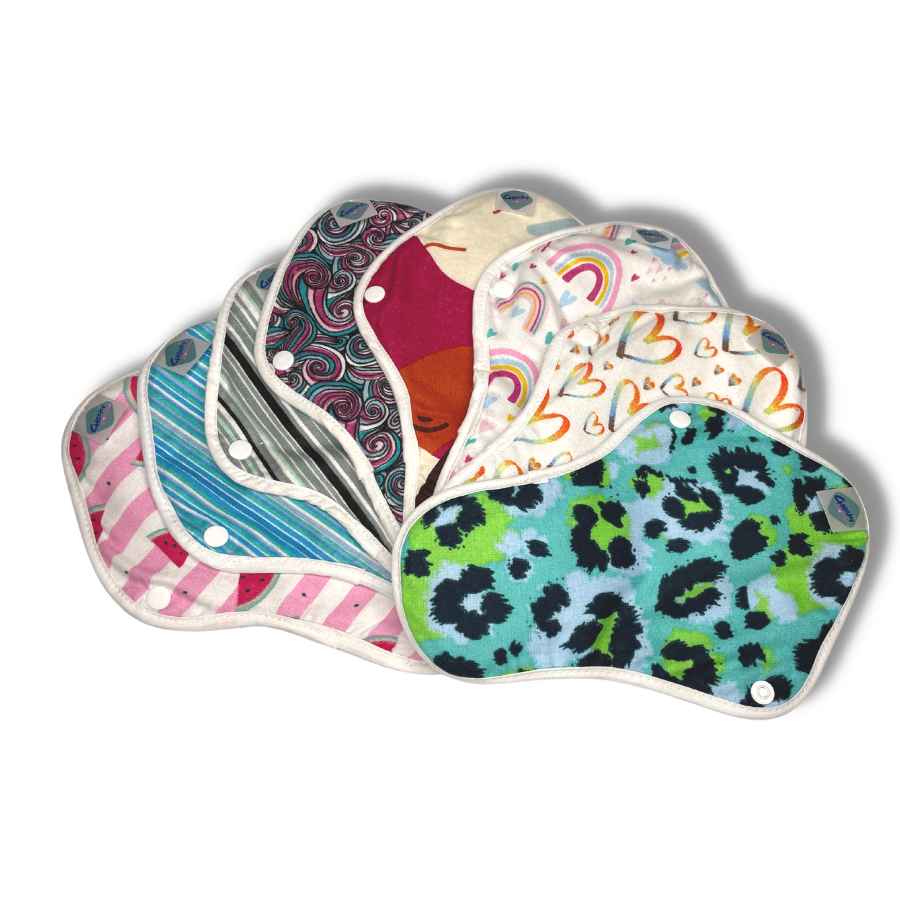Beating the Incontinence Stigma: The Best Postpartum Pads and Pants 2024
Comments Off on Beating the Incontinence Stigma: The Best Postpartum Pads and Pants 2024A lot of mums feel embarrassed about the changes in their bodies after giving birth, but they shouldn’t.
1 in 3 women experience urinary incontinence, and studies show that 10% of mums suffer with bowel incontinence after giving birth. Embarrassment has led those suffering with incontinence to not report their symptoms. The National Childbirth Trust reports that 38% of mums who suffer with incontinence admit they were reluctant to speak to their GP at first about the symptoms associated with it.
Incontinence and the shame around it is so common among both new (and experienced) mums that the MASIC Foundation have gathered stories from those suffering with it. Many women share how they feel“ unclean, degraded, unhappy and isolated” when suffering with their symptoms, and Luce Brett (author of PMSL) shared how mums shouldn’t hide away when it comes to expressing how they feel.
But, just because it’s not often spoken about does not mean it doesn’t happen!
So, why does it happen?
It makes sense that urinary incontinence and/or bowel incontinence symptoms arise due to the toll of childbirth and pregnancy on the body. Your pelvic floor muscles (which support your bladder, uterus, and rectum) can become weakened during pregnancy due to the weight of your growing baby, and during delivery as your baby passes through the birth canal.
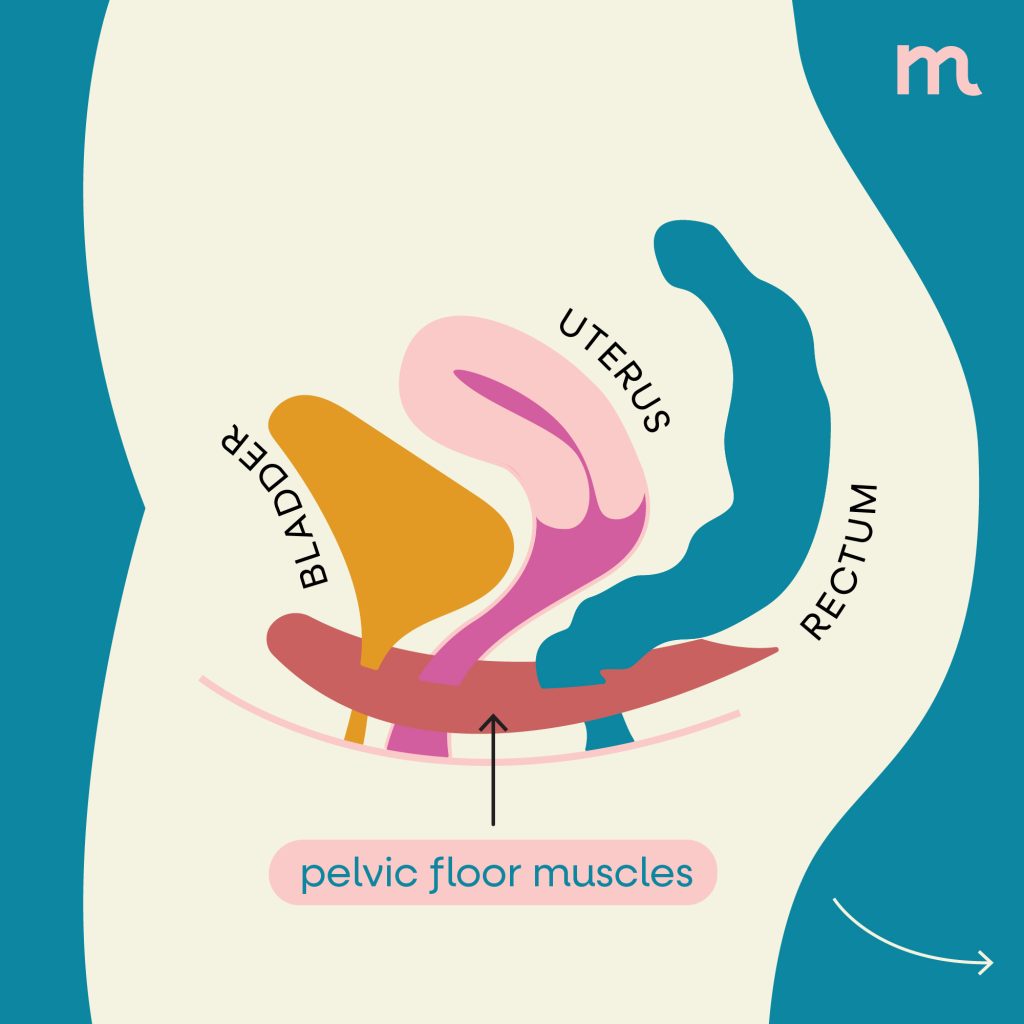
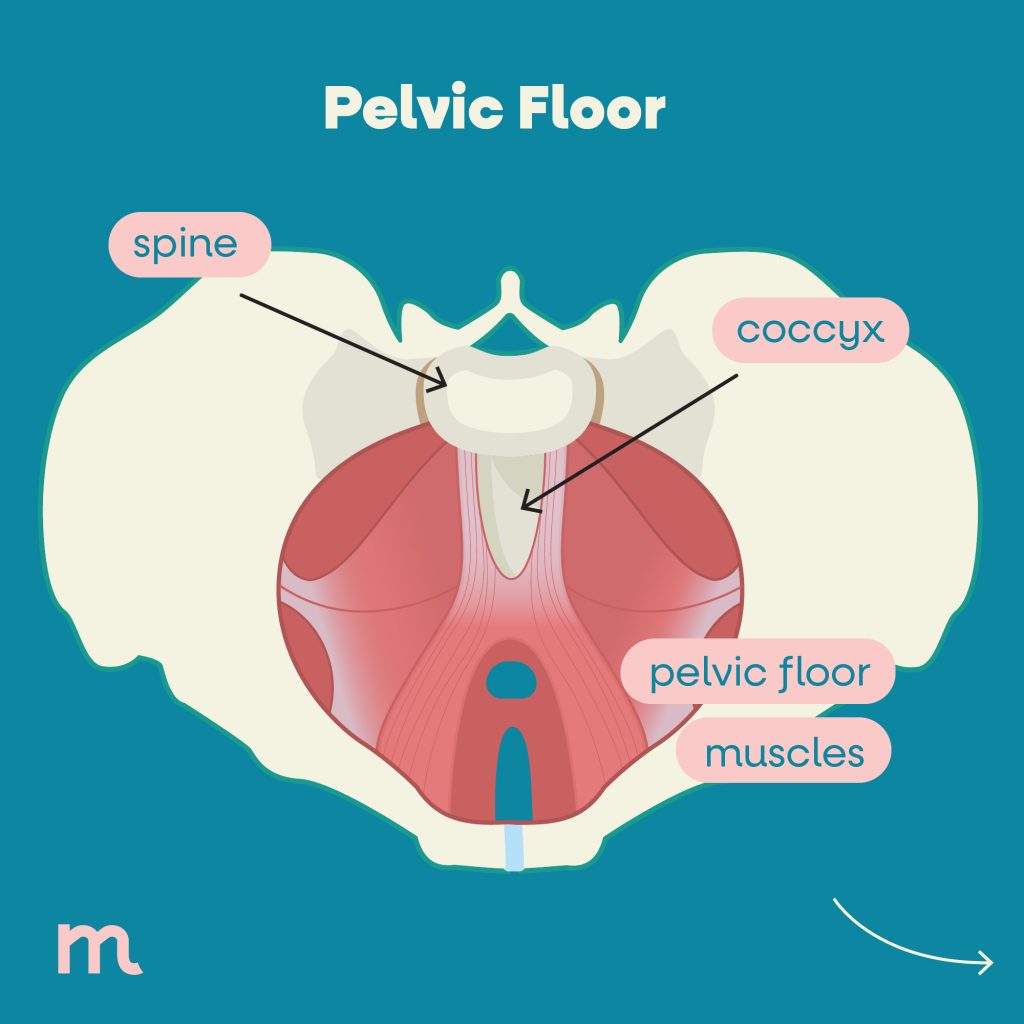
Due to the stress on your pelvic floor muscles before and after birth, the pressure on your bladder may lead to it leaking without your intention – e.g. when laughing, coughing, or moving suddenly such as during exercise. It is possible to experience a greater urgency to wee, or a mixture of both stress and urgency on the bladder.
Bowel incontinence is common because during the process of labour, pushing can harm the muscles that open and close your bowels. Signs that you may be experiencing bowel incontinence include: finding it difficult to hold in poo when you need to go, passing wind without intention, or you may be noticing stains in your underwear as a result of either factors.
The Mumie app contains loads of resources around incontinence of the bladder and bowels, plus lots of other taboo topics like prolapse and even the best way to poo for your pelvic floor. Sign up using the link here.
There are ways to alleviate both the pains and discomfort of incontinence during your postnatal period and beyond.
To start you off, we’ve done the homework for you and have put together a variety of incontinence pads and pants available across a range of needs:
For those with heavy flows:
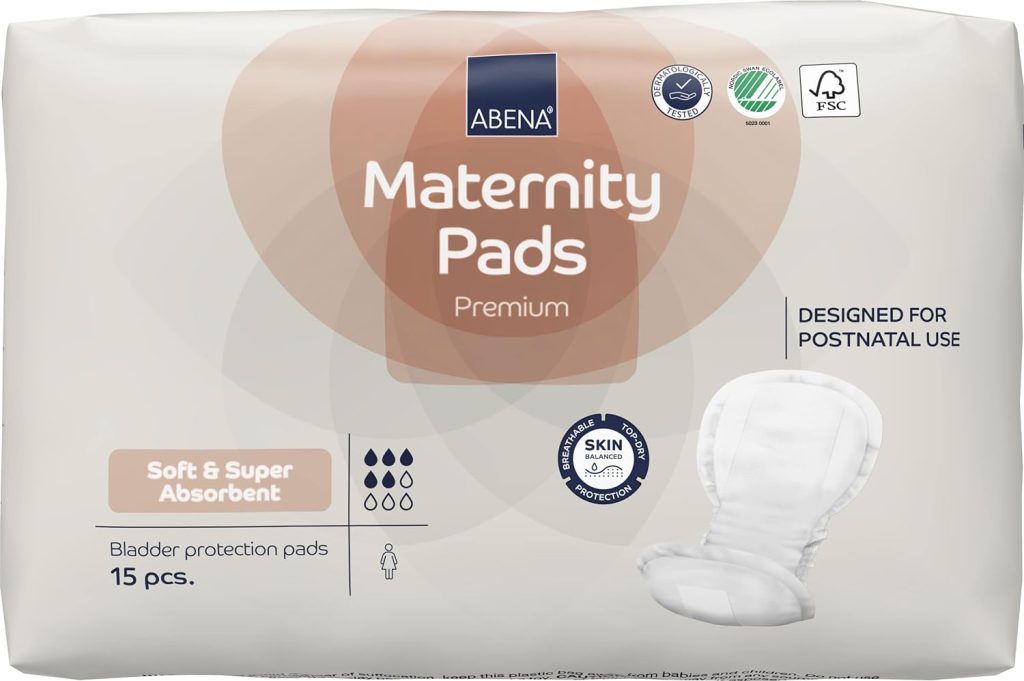
Abena premium | Single-use | £4.99 for 15 on Amazon
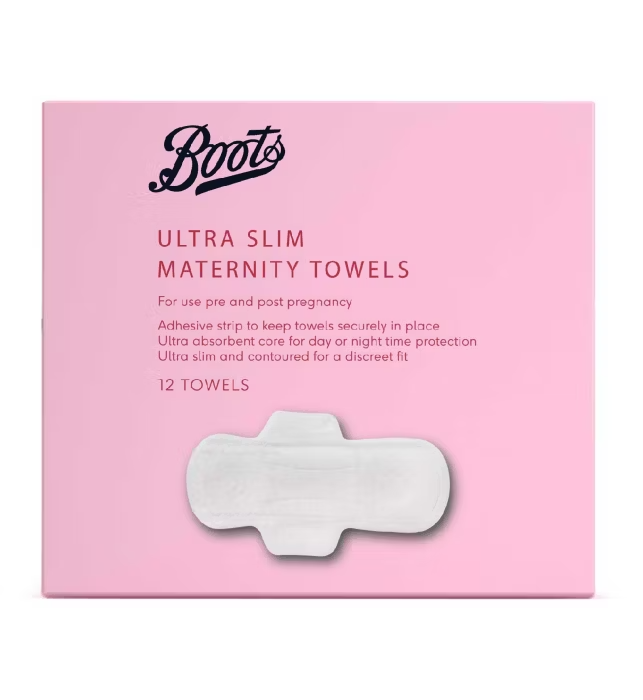
Budget:
Boots Ultra Slim Maternity Towels 12s | Single-use | Winged | £1.55 at Boots
Best for night-time

Always Discreet Incontinence Pads Plus Woman Ultimate Night X 12 | Single-use | Not winged | £4.89 (Boots)
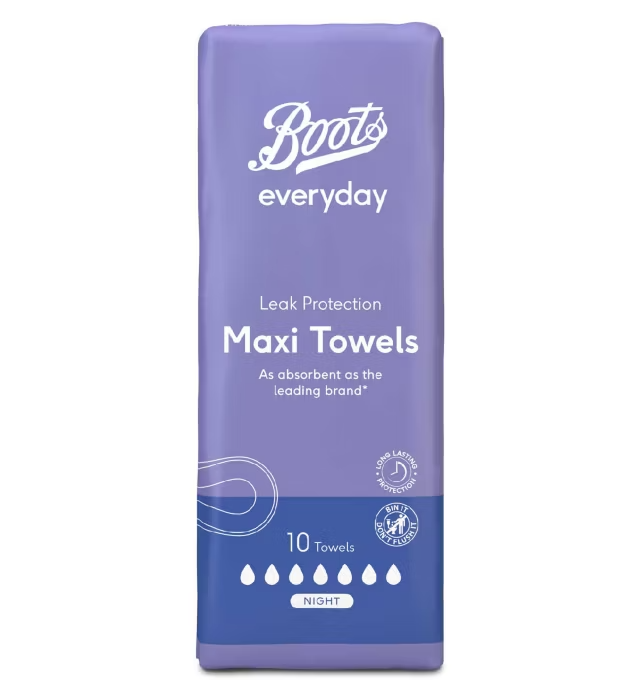
Budget:
Boots Everyday Maxi-Towels Night 10s | Single-use | Not winged | £0.90 from Boots
For those who have sensitive skin:
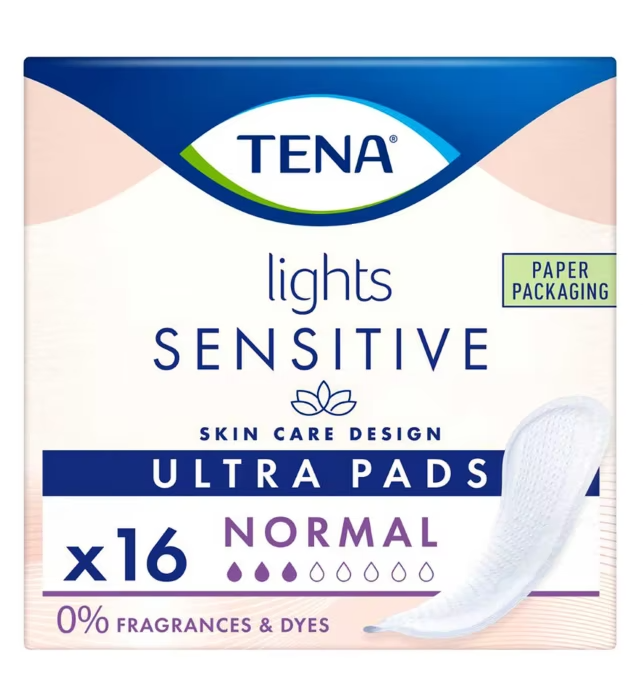
TENA Lights Sensitive Ultra Pads (16 pack) | Single-use | Not winged | £2.99 Superdrug (on offer £2.50 as of 18/3/24) or £34.99 for 8 packs of 16 on Amazon
Best discreet
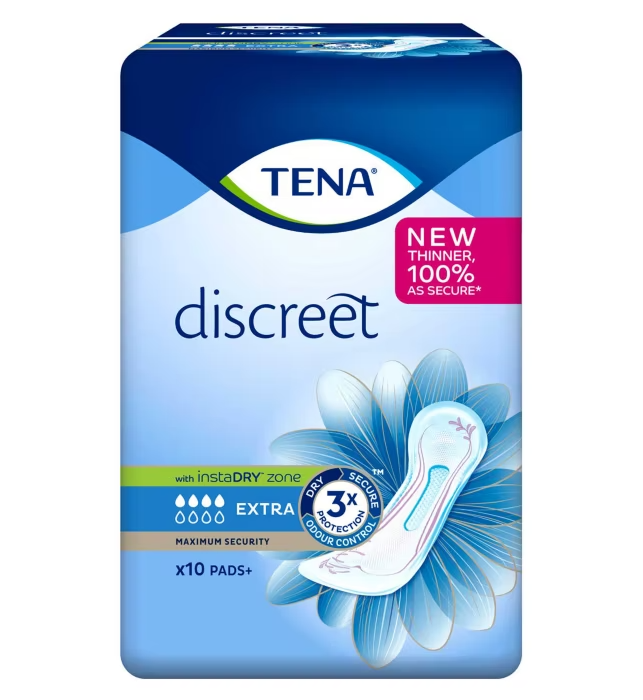
TENA Discreet Extra Incontinence Pads for Bladder Weakness 10pk | Single-use | Not winged | £2.55 Boots (26p per pad) or £14.40 for 72pc multipack at Amazon
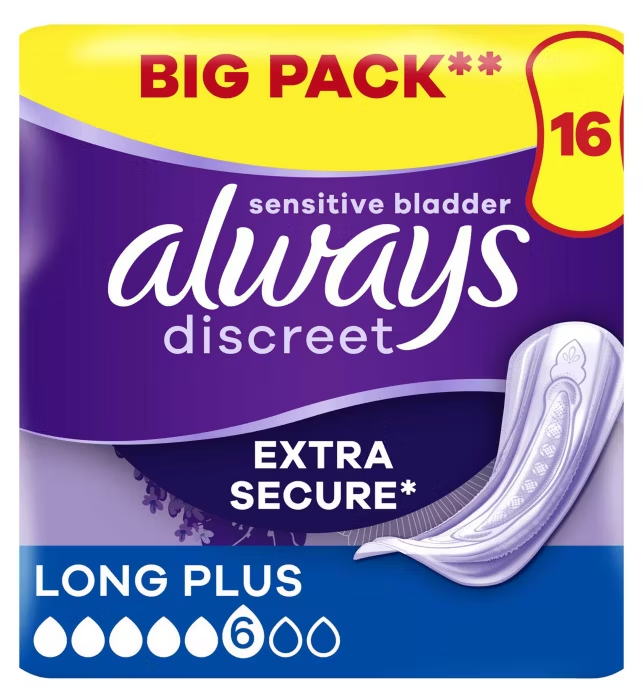
Budget:
Always Discreet Sensitive Bladder Pads Plus Women Long x20 | Single Use | Not Winged | £4.89 for 20 (24p per pad) at Boots
Best long-term/reusable
Best for bowel incontinence
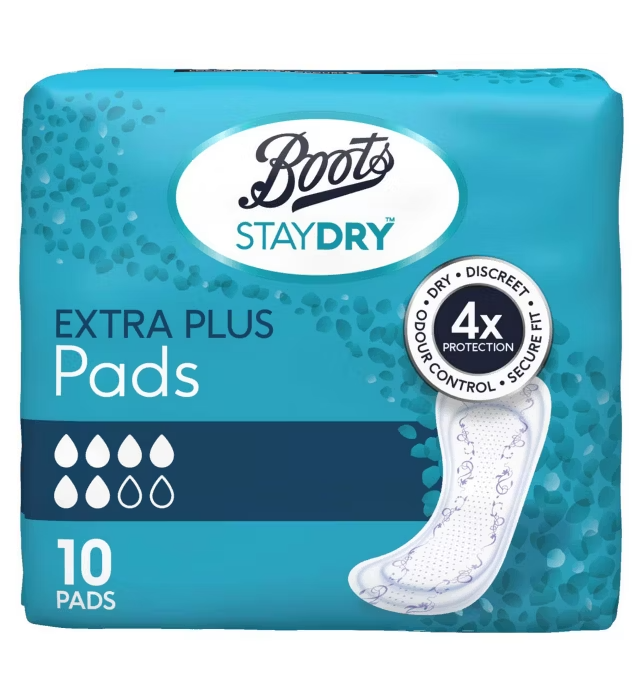
Staydry Extra Plus Pads | 10pk | Single Use | Boots £2.29
Managing your symptoms
If you are suffering from incontinence, the NHS recommends starting with exercising your pelvic floor muscles. There are a range of resources online to help you with pelvic floor exercises, with full instruction provided in the Mumie app, videos on Youtube, and specialist apps such as NHS recommended ‘Squeezy’.
Sometimes lifestyle changes are recommended to alleviate symptoms, such as diet changes, and reducing alcohol and caffeine where appropriate.
Don’t forget to contact your GP
It is typical to experience incontinence within the first few weeks after birth, but some women experience certain symptoms for longer. Incontinence is unfortunately common after having a baby, but should never be accepted as “normal.” Be sure to check in with your GP if you have concerns about ongoing, worsening or unusual accompanying symptoms. It’s important to remember that incontinence is a treatable condition in most cases.

Tayla Halfacre is a Writer, Director and Editor. Her work often centres gender, sexuality, and social impact. She has published poetry in Cobra Milk and has poetry forthcoming with Carrion Press. In 2022 she was selected to be part of the Writer’s Lab with BFI Network X Northampton Film Festival, and selected to develop her play ‘Lesbian Line’ based on the community support landline by The Masque Theatre and Playhouse Theatre. She is interested in reducing stigmas and raising awareness around women’s health.


